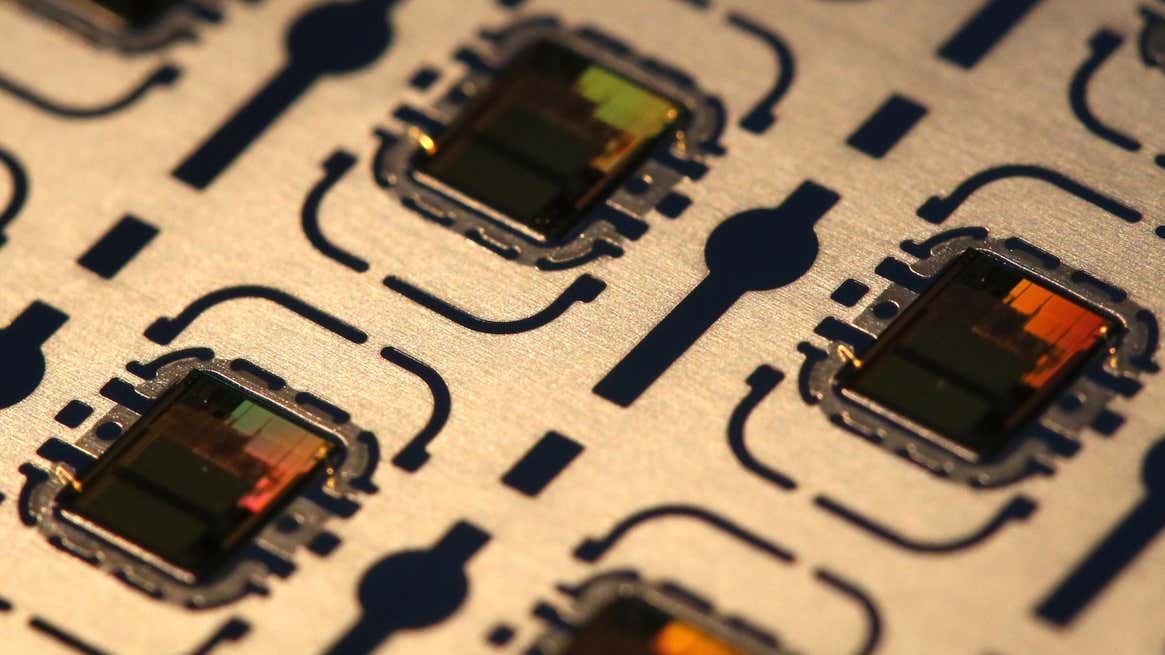However, both chambers will need to negotiate a compromise bill before it reaches President Biden's desk.
 |
| Photo: Vladimir Gerdo\TASS (Getty Images) |
So there’s some good news and bad about the ongoing chip shortage. The good news: The U.S. House of Representatives has passed a bill that allocates nearly $300 billion to technological investments to give a desperately needed boost to American semiconductor manufacturing. The bad news: This legislation is almost guaranteed to never see the light of day — at least in its current state.
The America COMPETES Act of 2022, which cleared the House on Friday in a vote almost entirely along party lines, would provide comprehensive subsidies for manufacturing and research and tweak existing U.S. trade policy in a bid to challenge China’s growing technological influence.
Among its long list of provisions include $52 billion in grants to subsidize American design and production of chips as well as another $45 billion to strengthen the nation’s supply chain infrastructure for critical items. The legislation would also support welfare programs geared toward workforce development and take a top-down approach to bolstering domestic research efforts in many areas, such as by increasing funds for the National Science Foundation and STEM education programs.
At a Friday press conference, House Speaker Nancy Pelosi said the bill “will ensure that America is preeminent in manufacturing, innovation and economic strength and can outcompete any nation.” Representative Madeleine Dean, a Democrat from Pennsylvania, described the COMPETES Act in a press release as an “opportunity to revitalize communities across our nation that have suffered substantial manufacturing job losses for decades.”
If enacted, the legislation would represent America’s most far-reaching attempt yet to compete with China’s technological dominance on the global stage. That being said, though, any hopes of this bill making it to President Joe Biden’s desk are practically zero if lawmakers can’t arrive at a compromise. As the New York Times notes, Republicans have widely criticized the bill as being too weak on China and having too many superfluous provisions aimed at conservation and clean energy incentives.
Several GOP legislators have accused Democrats of trying to outspend China in their race to bolster America’s position in the global technology market. Critics also argue that the bill doesn’t include significant punitive actions to hold Beijing accountable.
Representative Kevin McCarthy, a Republican of California and the minority leader, denounced the bill in no uncertain times in an interview with the Times.
“It wastes billions of dollars on unrelated matters and includes no measures to make China pay for the chaos they created,” he told the outlet.
The bill’s Senate counterpart, the U.S. Innovation and Competition Act of 2021, has already secured the necessary votes to pass with the support of 19 Republican Senators. Now, Congress will move to hammer out a compromise bill to put before Biden. However, deep ideological differences between the two chambers threaten to tie up negotiations, including how tough to be on China and how to most effectively fund domestic research, the Times reports.
On Friday, the president urged Congress to move swiftly.
“I look forward to the House and Senate quickly coming together to find a path forward and putting a bill on my desk as soon as possible for my signature,” Biden said in a White House briefing. “America can’t afford to wait.”
